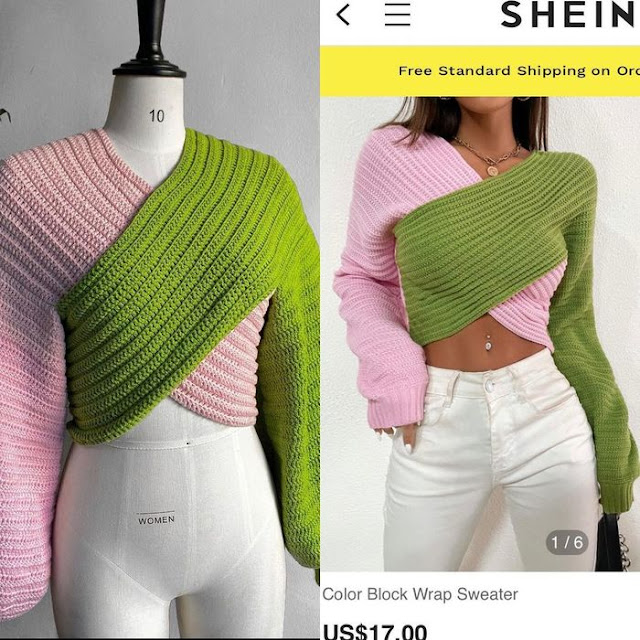No Such Thing as Cheap Crochet
By Ava Killbourn
Over the past few years, youthful styles and fun colors have imbued the age-old craft of crochet with new life and garnered it a new fanbase who have made colorful crochet tops and chunky cardigans one of the signature characteristics of early 2020s fashion. Crochet is a uniquely personal medium, each stitch crafted by hand with care.
But herein lies the catch of the crochet craze: crochet is, by nature, only suited to slow fashion. Unlike knitting or sewing, the transverse chain stitches that crochet uses are too complicated for a machine to perform. Because it is impossible to replicate mechanically, crochet is always made by hand, no matter how cheap. Companies like Boohoo, ASOS, SHEIN and Missguided sell a whole range of crochet dresses and tops, some for as low as £5. In a Varsity UK article, fashion columnist Eleanor Antoniou points out that labourers simply cannot be fairly paid for a time-intensive medium like crochet when it is sold at fast-fashion prices. Crochet requires skill and attention to detail. Making an item by hand takes hours or even days. A more ethical crochet brand will often price their pieces between £70 to £100 to properly compensate their workers.
 |
| Tom Daley & Harry Styles, two of the celebrities responsible for the heightened interest in crocheted garments over the last few years |
It is becoming increasingly well-known that fast-fashion companies abuse their workers, often women and children, who often work excessive hours, 7 days a week in violation of labour laws and fair labour practices. CNN estimates that the average fast fashion worker makes an average of 18¢ on a £29 shirt. If this garment takes a whole day, at the very least, to make, then garment workers are making almost nothing. This exploitation is indefensible with regards to any garment or garment-making process, but crochet emphasises the lengths fast fashion companies are willing to go to in order to save money and make sales.
Another unfortunate ethical consequence of the crochet craze is the theft of individual crochet artists’ original designs. Young, talented designers like 24-year-old Evvia from Norwich are often ripped off by larger companies who have the money and influence to push smaller creators out of the market. Evvia talks about seeing intricate crochet garments in stores like Zara that would take her a full day to complete, even as an experienced professional in the craft. She recalls being horrified at the prices of such garments, knowing the worker could not have been compensated fairly. Luci Wilden, founder of the independent, Black, woman-owned crochet label Knots & Vibes, was angry to see Fashion Nova had copied a dress she designed in 2016 'detail for detail', determining based on the cost that whoever crocheted the copy had been paid 'less than $1 per hour'. Small creators usually don’t have the time or energy to pursue copyright violations and therefore are exploited repeatedly with little or no consequences for the perpetrating company.
 |
| Fashion Nova’s 'Marley Love' cover-up compared to Luci’s 'Skin Out' dress |
Knitwear designer Bailey Prado has also called out SHEIN for stealing no less than 20 of her original designs. On Prado’s website, her pieces go from $95 to over $300 while the copies on SHEIN were listed for $20 or less. She talks candidly about the pain of seeing her designs copied, citing a personal connection to the pieces that came from their uniqueness and the time it took her to create them. In another case, Crochet Bao’s custom chunky strawberry cardigan was ripped off by Shop Cider, sold for $32 compared to her $195 original. She says it took her three months to design the cardigan and a full 18 hours to crochet the entire piece. She calls seeing the knockoff sold for 1/6 her price 'insane'.
 |
| SHEIN’s copy of Nigerian crochet brand Elexiay's original design |
By buying crochet pieces for cheap, we inadvertently contribute to some of the most egregious abuses of the modern clothing industry, even by fast fashion standards. By pricing out ethical crochet artists who pay themselves and their staff fairly and lining the pockets of the overinflated retail giants, we do a disservice to creators and the craft itself. Crochet is an art form, and the artists deserve to be honored as all artists should be; with proper compensation and ownership over their work.


Comments
Post a Comment